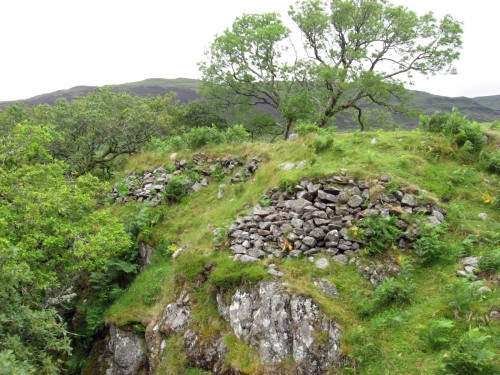I’ve been in a funk lately. Here’s why.
Psychologists use the term “schema” to describe the result of collecting information, analyzing it, and creating a view of the world based on that analysis. A kind of rule book of how things are. These schemata play a part in every decision made, every judgment cast, and every new piece of information we take in for the rest of our lives. It’s a term closely tied to child development–in fact, it was introduced by Jean Piaget, the king of child development himself.
My job as a teacher requires me to observe children under two, record their actions, and ultimate try to guide them by manipulating the information they take in. I give them a bucket of water, they explore the physical properties, I supply the language necessary to categorize them, and then teach them how to clean up. They hit another child and steal his toy, I show them the child’s tears and explain that their actions resulted in someone else’s pain. Everything is a brave new world when you’re brand new to it. Schemata form by the moment. They’re dependent on the environment encountered and the child’s interaction with it. Childhood is, in effect, a 20-year-long experiment in brain development.
Here’s the thing about schemata. They can be very difficult to shake. Another term psychologists like to throw around is “cognitive dissonance.” This occurs when new information presents itself in contradiction to established schemata. The resulting dissonance can be so unpleasant that the individual will go to great lengths to reduce it while maintaining the fundamentals of the established schema, resulting in massively flawed rationalizations. That’s why certain worldviews, like racism, are so hard to dislodge from someone’s psyche.
Last week I endured a viewing of the excellent but brutal Twelve Years a Slave. From our modern, enlightened viewpoint, the white slaveholders in this movie are incomprehensible. Can they not see that their actions have no true basis, are damaging, are fundamentally wrong? We can see it, why can’t they? Our schemata are different. The majority of people in this society are not raised to view entire segments of humans as inferior based on skin color. Though discrimination of course still exists, in both racism and class discrimination, modern enlightened people are not taught that slavery is a god-given right to a select group to subjugate another. So we watch characters behave in intolerable ways and wonder, “How can they be so cruel?” It’s obvious to us.
The most interesting character, in my view, is William Ford, played by Benedict Cumberbatch. Ford is the slave owner who buys main character Solomon Northrup right off the boat, putting him to work on his plantation in Louisiana. Ford quickly discerns the intellectual and artistic capabilities of Northrup and displays a certain amount of kindness toward both his physical and emotional well being, defending him against less compassionate overseers. However, when the time comes for him to make a choice that brings his entire worldview into question, he ultimately fails, and with apparent great inner turmoil. Rather than siding with an individual who had already proven his worth, he chooses to uphold society’s proscribed roles for both of them. You can see the conflict in Cumberbatch’s exquisite acting and in the details of the set dressing, as Ford guards his beloved slave with a shotgun and explains how he has no choice but to sell him to a cruel new master, Northrup’s bloodied head rests on a delicate lace pillow. Ford is so close to doing what he most likely knows in his heart is right, but societal pressures prevent him from overturning his deeply-entrenched schemata. In the end, Northrup is sold, and Ford no longer has to defend his actions to anyone.
All this is by way of illustration. My funk has nothing to do with racism, but it’s an apt analogy, because good people have fallen victim to such lies. Contrary to what people like to think, there were even good Nazis (I keep meaning to watch Schindler’s List). Good people can be taken by lies. They can believe them with every part of their being, and they will die for them. And that’s what scares me, because the people who get taken are much more normal and intelligent than you might think.
Needless to say I am going through a change. It’s been long in coming. Almost my entire life has been dedicated to a single purpose, and over the past seven years or so, in reflection I recognize myself trying to make sense of it. It’s not until your mid-twenties, after all, that your prefrontal cortex fully develops. This is the part of your brain responsible for “executive functions,” which, according to Wikipedia:
differentiate among conflicting thoughts, determine good and bad, better and best, same and different, future consequences of current activities, working toward a defined goal, prediction of outcomes, expectation based on actions, and social “control” (the ability to suppress urges that, if not suppressed, could lead to socially unacceptable outcomes).
Last week I turned 27. Instead of joining the 27 Club, I’m instead learning to think for myself. My schemata have proved to be based on logical fallacies and, in many cases, wishful thinking. It’s all good and well to teach children to obey their parents, but to obey unquestioningly? That’s insulting the intelligence of the child. A child can easily learn why it’s best not to play with fire by playing with it and getting burned. Parents try to avoid that by teaching children to keep their hands off. One method, involving instilling unquestioning obedience, usually results in children testing their parents’ command and playing with fire anyway. Others are more successful. Teaching children how to reason on matters, explaining the facts to them, and helping them form conclusions is more beneficial to the child. After all, the unquestioning child, instead of rebelling against the parent’s wishes, may grow up to fear fire, never learning to discriminate between safe and unsafe use and therefore miss out on the benefits it has to offer.
I am reaching the point in my life where I’m putting what I was taught to the test and discovering where it does not hold up. It is a long and exhausting process, full of disappointment. At times I feel betrayed, but mostly I feel free. Not necessarily free to do whatever I want, like the child who breaks away from mother in a toy store and runs wild, but free to not to be afraid of things that have terrified me my entire life. People are not bad; I do not have to be afraid of them. I can form friendships using good judgment that will benefit us both, unconditionally. I no longer have to turn people away because they don’t subscribe to a particular belief system. I’m free to form connections, share information, and experience love in a way I never could before.
A little more about that information. It’s the free exchange of information that got me out of this funk. I am grateful to so many people who directly and indirectly were able to remove the scales from my eyes and help me to see reason. If you want more specific information, I encourage you to look at Steven Hassan’s BITE model of mind control. The organization I grew up in hits on all four categories in profound ways.
My goal here is not to write a diatribe against my former belief system. There were many positives to growing up as I did. Other people are working actively to expose the fallacies and are doing much better than I ever could. It is not in me to dwell on so much negativity, although I must admit my first reaction to finding out the truth was anger.
Besides, if I get too deep into the specifics of what’s happening to me, people who read this blog and who currently hold my previous beliefs can get me and my loved ones into serious trouble. I don’t want to cause trouble for my loved ones. I don’t want to force upon them an impossible choice, namely, choosing between me and their beliefs. For my part, I want us all to get along. I want us all to be able to form our own beliefs without fear of reprisal, criticism, or ostracism. If the wrong people gather enough evidence of my “change of heart,” I will be ostracized from the social group I have been in my entire life, and my own family with be restricted from associating with me. I do not want to do that to them, but at the same time, even though they are as much taken by the destructive beliefs as I was, the choice will ultimately be theirs. Believe what others tell them is true, or endeavor to decide that for themselves. And accept the consequences of their actions, just as I have to accept the consequences of mine.
I’ve probably said too much. I have tried to hold back, but my love of truth prevents me.
One final thought about the title of this post. In Shakespeare’s day, “doubt” had the alternative meaning of “suspect.” The line can thus be interpreted to mean “suspect truth to possibly be untrue.” Do not just take someone’s word for it, or the word of a group of people, even every person you know. They can be wrong. Prove it to yourself. Keep testing, keep proving what it is you believe, and never stop.
Alternatively, read George Orwell’s Nineteen Eighty-Four. He possibly says it better than me.
2+2≠5







